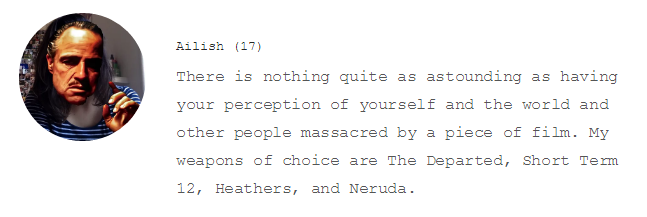Lantouri is a film that outgrows its title. Not really about the titular street gang, the movie depicts itself initially, as a sort of heist-gone-wrong documentary, but quickly latches on to the relationship between Pasha and Maryam. Pasha is the leader of Lantouri, and Maryam is a journalist attempting to cover difficult subjects that the Iranian media won’t print, as well as a passionate activist against Iran’s lex talionis law of retaliation. They meet, and Pasha is enchanted. When they run into each other a year later, Pasha is quick to latch on, and it becomes clear to the audience his obsession with Maryam. The story is told as a non-linear narrative, splicing after-the-fact interviews of witnesses and experts with the actual events. This structure creates an interplay of political commentary and personal growth.
The film is, first and foremost, a statement about the ‘eye for an eye’ law Qisas in Iran, which catalyses the central moral conflict of the film. Underneath that, director Reza Dormishian explores the concept of forgiveness and retribution in a harrowing, graphic and at times sickening fashion, through the events that transpire in Pasha and Maryam’s relationship. There are elements of the comedic in the film, through the contrast of the police chief’s testimony and those of Lantouri’s members. However, for the most part the film is a political drama.
The film deals with several different concepts, but the one that hit home for me was Maryam’s personal moral journey, in which she grapples with her abstract politicized values colliding with profound intimate tragedy. Maryam begins the film as a righteous, yet prideful woman, risking her life for her career by submitting her work to American media groups, whilst being comparatively safe, cocooned in her upper class lifestyle. She maintains a firm stance against lex talionis, working with inmates and prosecuting families to find reconciliation outside of retaliation. However, it is only when she faces the option herself that her deepest emotions concerning the issue arise. I’m a highly politicised teen with similarly hard stances on issues I have never had to confront on a personal level. I would like to think that should the situation arise I would stand by those principles, but Dormishian argues that it is not as simple as looking at the bigger picture and understanding what you need to do. Maryam needs to separate herself from what has happened to her, in order to find footholds to scrap to the moral high ground. This is a logically impossible task. Experiencing Maryam’s anger is a kind of mirror to the audience concerning their own strength of moral character.
I left Lantouri in a hurry. First, because it was late, and I had school the next day. Second, because I was alone and had not the first idea about how to talk to people after a film festival, and third, because the movie had left me off kilter. With its myriad and diverse themes, I was without a singular emotive opinion. Instead I rode the train home musing an endless stream of feelings. Why does the separate entity emotionally distant from the crime – the law – have the right to tempt a victim, in the way lex talionis does? Why does Sharia law, religious law, ask for such a right, when religious life, and God, are about forgiveness? If I were in the shoes of the criminal, would I be able to respect the sentence? If I were in Maryam’s shoes, would I have had the strength to say no? Would I have had the strength to say yes?
Lantouri is screening in the Iranian Film Festival nationally.

